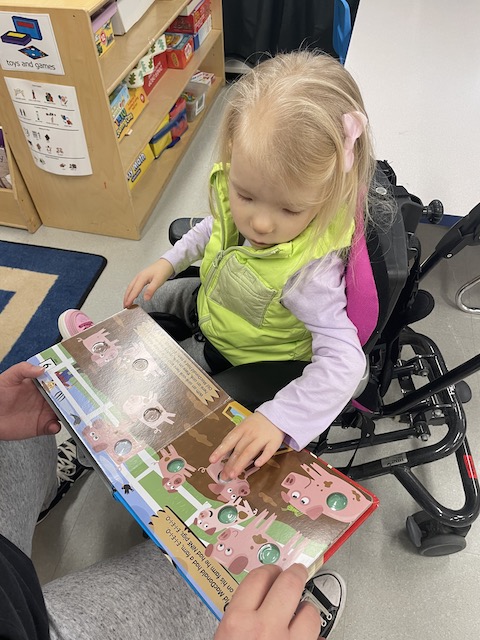Frequently Asked Questions About Our Program
-
What is an Early Childhood preschool model?
Early Childhood preschool programs are a vital part of public school districts. Children that attend Early Childhood programs have access to the resources, curricula, teachers, schools, etc. within a school district’s boundaries. Early Childhood programs consist of typically developing community peers as well as students receiving special education services. They are programs for children that are between the ages of 3-5. Early childhood programs assist children in their transition to kindergarten.
Is this a special program or a preschool?
The Community of Learners program utilizes an Early Childhood education model to prepare students for success in District 67. It is open to all 3-5 year olds living within the Lake Forest Elementary School District 67 boundaries. The Community of Learners early childhood preschool program consists of typically developing community peers as well as students receiving special education services.
Who can come to this program?
Any child between the ages of 3-5 living within the District 67 school boundaries. Enrollment for typically developing children is ongoing until the classes are full. Students with Individualized Education Plans are always accepted through the IEP process. The tuition rate set by the Board of Education for the 2023-2024 school year is $4,500.
What can my child get out of this program?
The Community of Learners preschool program is an inclusive environment that allows children to learn, explore, and interact with other children in the Lake Forest community. It gives children the opportunity to grow with other children that they will be attending elementary school with. This provides unique opportunities for our students to align with District 67's calendar, activities, and curricula.
When can my child start?
Children can begin the program as early as their 3rd birthday. They can also attend any time between their 3rd birthday and the beginning of their kindergarten school year. Children who turn 5 before September 1st attend kindergarten. (Click Here to Enroll using the District's online registration system - PowerSchool). Families new to the District will need to first create an online account.)
Is the program full-day?
There are two half-day programs, an AM and a PM session. The AM program is from 8:30-11:00 AM for children 3-4 years old and two years away from kindergarten. The PM program is 12:00-2:30 PM for children that are 4-5 years old and one year away from kindergarten.
Is my child in the AM or PM session?
Children that are 3-4 years old and two school-years away from kindergarten are in the morning session. Children that are 4-5 years old and one school year away from kindergarten are in the afternoon session. Children who turn 5 before September 1st attend kindergarten.
What is a blended classroom?
A blended classroom is an inclusive learning environment composed of typically developing community preschoolers and preschoolers receiving special education services through an Individualized Education Plan (IEP). In alignment with District 67’s philosophy of inclusion, special education and related services are provided within the general education classroom setting as much as possible. Typically developing peers benefit from being taught by experts, enjoy leadership opportunities, and learn within a small student-to-staff ratio.
 What is a co-taught classroom?
What is a co-taught classroom?District 67’s Community of Learners early childhood preschool program uses a co-taught educational model. Our co-taught classrooms are taught by both a teacher certified in Early Childhood Education and Special Education as well as a Speech-Language Pathologist. As all young children are growing in their communication skills; this structure allows all students to learn and grow in a language enriched environment, while providing some students with the supports they need to succeed. Occupational Therapists, Social Workers, and Physical Therapists all support the classes and individual students, allowing all students to learn from specialists in their field. Paraprofessionals support the classes as well, providing the opportunity for classes to enjoy a small student to staff ratio.

